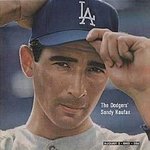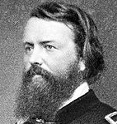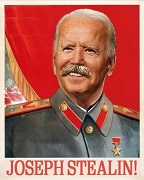|
The Lord of Hats posted:Come on, now, that's not true at all. Yeah, I think the fact that we're judging all of these people from our modern perspective and values means that it's nigh impossible for us to weigh the candidates objectively in their context. I mean Wing's only on the ballot in 5 states and running as a protest candidate and goons are probably going to put him in the White House regardless. Which is of course part of the fun. Although I kind of like the cut of this Bellamy chap's jib. Why can't we vote for him? (Man, goon-selected candiates would make this thread even more gloriously ridiculous. I mean we'd almost certainly have President Hamilton rather than His Also FYI i'm voting for Teddy in every election he's on the ballot, Debs or no Debs. Gotta get those National Parks. Bully!
|
|
|
|

|
| # ? May 4, 2024 02:46 |
|
Wing
|
|
|
|
I voted for the guy with the same name as me As I always do and always will
|
|
|
|
Cast my vote for Bidwell! Full communism is all well and good, but I like my promises of reform to come from people who actually have a chance of pulling them off. Granted, actual prohibition is a poo poo policy that is only ever going to cause trouble, but he's not attempting to dismantle his own office and replace the entirety of the government and society with a completely new structure.
|
|
|
|
Yvonmukluk posted:Although I kind of like the cut of this Bellamy chap's jib. Why can't we vote for him? Bellamy is a fascinating character in and of himself. His book, Looking Backwards, was the third-largest bestseller of the 19th century behind Uncle Tom's Cabin and Ben-Hur. Its popularity, in turn, inspired a pseudo-socialist poltical movement during the 1880s similar to the Fourier phalanxes of the 1840s. Had it not been for Bellamy's failing health and the unexpected rise of the Populists, the movement might have gained some steam. Bellamy recognized that "socialism" had become politically toxic and needed rebranding if it was to survive as a major force in the United States. Looking Forward is filled with the delightful predictions and bizarre optimism that characterizes a lot of utopian fiction. For example, he envisions stores where you can buy literally anything whose products are delivered within 24 hours to your house via a complex tube network. While I'm here and on the topic of bizarre futurism, I do want to highlight an absolutely phenomenal article published by The Strand magazine in 1893. The article's premise revolves around the discovery of a book from the future. In the future, it seems, fashion has become a well-respected science "governed by immutable laws." The article then summarizes and illustrates the future trends in fashion, using the mysterious book as guidance. Here are some of the illustrations:        
QuoProQuid has issued a correction as of 11:47 on Jul 26, 2016 |
|
|
|
QuoProQuid posted:Bellamy is a fascinating character in and of himself. His book, Looking Backwards, was the third-largest bestseller of the 19th century behind Uncle Tom's Cabin and Ben-Hur. Its popularity, in turn, inspired a pseudo-socialist poltical movement during the 1880s similar to the Fourier phalanxes of the 1840s. Had it not been for Bellamy's failing health and the unexpected rise of the Populists, the movement might have gained some steam. Bellamy recognized that "socialism" had become politically toxic and needed rebranding if it was to survive as a major force in the United States. I love these so much.
|
|
|
|
Bibliography [...] Individual works in English The Hierarchies of Cuckoldry and Bankruptcy. Cambridge, MA: Wakefield Press, 2011. Sounds like C-SPAM's new favorite book.
|
|
|
|
QuoProQuid posted:Bellamy is a fascinating character in and of himself. His book, Looking Backwards, was the third-largest bestseller of the 19th century behind Uncle Tom's Cabin and Ben-Hur. Its popularity, in turn, inspired a pseudo-socialist poltical movement during the 1880s similar to the Fourier phalanxes of the 1840s. Had it not been for Bellamy's failing health and the unexpected rise of the Populists, the movement might have gained some steam. Bellamy recognized that "socialism" had become politically toxic and needed rebranding if it was to survive as a major force in the United States. That said, I'm going to assume this is how people dress in this timeline.
|
|
|
|
The article itself actually has some text that explain where some of the bizarre choices come from. Apparently the first leap from 1893 is men's fashion emulating women's fashion to an exaggerated degree. It also mentions that after so many years of being pent-up in fashion with crisp black and gray Victorian outfits, society uses fashion as a release and embraces wild color combinations and bizarre extravagance. It's a neat look at the feelings of the author toward contemporary society and fashion, which seem to be expressed through this writing.
|
|
|
|
|
Here's another famous prediction article where a lot was scarily right on the money, but a lot was not.
|
|
|
Corek posted:Here's another famous prediction article where a lot was scarily right on the money, but a lot was not. This is really ripe fodder for an RPG setting or something.
|
|
|
|
|
chitoryu12 posted:This is really ripe fodder for an RPG setting or something. gently caress steampunk
|
|
|
Corek posted:gently caress steampunk It's not even steampunk! According to the author, everything is running on electric motors to the point where coal is almost totally out of use and houses no longer have chimneys. It feels a lot more interesting than typical steampunk and dieselpunk settings, since you've got such a weird mixture of things like electric ekranoplans that dive underwater to avoid storms and take "only 2 days" to cross the Atlantic and pedestrian-only ground levels in cities, but airships instead of airplanes. And apparently electricity is a miracle substance that makes plants grow faster and larger, and you turn on spigots to control your HVAC by mixing hot and cold air.
|
|
|
|
|
chitoryu12 posted:It's not even steampunk! According to the author, everything is running on electric motors to the point where coal is almost totally out of use and houses no longer have chimneys. Fun fact I learned from the Dollop: apparently Henry Ford was working on an electric car when he was first starting out (with batteries supplied by Edison). Unfortunately the batteries were poo poo, and rather than look for another supplier he gave up on the idea. Also they struck oil in Texas, so gas prices went way down and we got the gas guzzlers we all know and love. Also QuidProQuid: please make sure to post the latest fashion from that handy chart for all future election announcements, please.
|
|
|
|
QuoProQuid posted:While I'm here and on the topic of bizarre futurism, I do want to highlight an absolutely phenomenal article published by The Strand magazine in 1893. The article's premise revolves around the discovery of a book from the future. In the future, it seems, fashion has become a well-respected science "governed by immutable laws." The article then summarizes and illustrates the future trends in fashion, using the mysterious book as guidance. Here are some of the illustrations: I see people dressed like this in Portland all the time.
|
|
|
|
As the extra-temporal beings whose only influence on this timeline is selecting presidents, why should we support a candidate who would eliminate the office of president? Four more years of Harrison, I say!
|
|
|
|
Simon Wing’s my man.Yvonmukluk posted:Also FYI i'm voting for Teddy in every election he's on the ballot, Debs or no Debs. Gotta get those National Parks. Bully! Also this.
|
|
|
|
Corek posted:Here's another famous prediction article where a lot was scarily right on the money, but a lot was not. I'm loving the term "wholesale cookery"
|
|
|
|
Tritanomalicious posted:I'm loving the term "wholesale cookery" Restaurant supply stores would do well to rename themselves to it.
|
|
|
|
Dear thread, have something that is random, presidential related, and bizarre from 1970 Life. [Note: the cover story may send the sensitive into neural shock.]
|
|
|
|
Nebakenezzer posted:Dear thread, have something that is random, presidential related, and bizarre from 1970 Life. [Note: the cover story may send the sensitive into neural shock.] One little, two little, three little Nixons... Four little, five little, six little Nixons... Seven little, eight little, nine little Nixons... Ten little Nixon Aroos
|
|
|
|
Nebakenezzer posted:Dear thread, have something that is random, presidential related, and bizarre from 1970 Life. [Note: the cover story may send the sensitive into neural shock.] 
|
|
|
|
Thank you for voting. Continuing America’s fascination with radicalism, Simon Wing has been elected President of these United States. Despite Wing’s clear advantages during the campaign, such as his complete lack of experience or viable party infrastructure, observers are somehow still stunned by the country’s most recent degeneration towards socialism. Appearing with his vice-president-elect, Charles Matchett, and acclaimed writer Edward Bellamy, Wing has promised an end to bourgeois rule and the beginning a new nationalist revolution. Meanwhile, President Benjamin Harrison has declared a banking holiday. Stocks have plummeted. American embassies around the world have received eviction notices as Congress meets in a special session to discuss new limits on the President’s power. The country is in for a turbulent few months. Let’s hope that Wing knows what he is doing.  MOST POPULAR TICKET: Simon Wing / Charles Matchett (Socialist Labor) - 59 votes (70.2%) James B. Weaver / James Gavin Field (Populist) - 11 votes (13.1%) Benjamin Harrison / Whitelaw Reid (Republican) - 7 votes (8.3%) John Bidwell / James Cranfield (Prohibition) - 4 votes (4.8%) Grover Cleveland / Adlai Stevenson(Democratic) - 3 votes (3.6%) TOTAL: 84 votes
|
|
|
|
ELECTION OF 1892 Click here to vote in the Election of 1896! Click here to vote in the Election of 1896!   Background: Grover Cleveland returned to the White House amid disaster. Shortly before his inauguration, the Treasury’s supply of gold went into a precipitous decline and the economy began to sputter. Fearing the worst, the Treasury urged the President to repeal the Sherman Silver Act, which allowed for the government to exchange silver for paper currency. Though Cleveland convinced Congress to repeal the bill, the economy failed to improve. The repeal sparked public fears, causing bank runs across the country and a steep drop in credit. Unemployment soared from 4 per cent to 28 percent nationally, with places like Michigan suffering 43 per cent unemployment. 500 banks closed. 15,000 businesses failed. Detroit was forced to open community potato farms to prevent mass starvation. Despite growing labor discontent and unfavorable press coverage, Cleveland refused to intervene. He did not believe that government should interfere in the economy and opposed all proposals to alleviate unemployment through public works projects. In 1894, matters finally came to a head through the Pullman Car workers’ strike.Led by Eugene V. Debs, workers shut down most of the country’s railroad traffic west of Detroit to protest lowered wages, layoffs, and Pullman’s company town. Despite an explicit demand from the Governor of Illinois to not intervene, Cleveland deployed 12,000 U.S. Army troops and thousands of U.S. Marshals to quash the protests. The intervention incensed urban workers against Cleveland. The repeal of the Sherman Silver Purchase Act and the strong federal response against workers caused a massive backlash against the Democrats. In 1894. In Missouri, one Democrat described the election as, “the greatest slaughter of innocents since Herod.” The election also exacerbated tensions within the Democratic Party, dividing it into pro-silver and pro-gold factions. From this panic emerged William Jennings Bryan. One month after the Republicans nominated their candidate, William McKinley, the Democrats met in Chicago for their convention. The event revealed just how unpopular Cleveland and his pro-gold stance had become, with speaker after speaker repudiating the sitting president and his policies. After several days of speeches, William Jennings Bryan, a little-known politician from Nebraska, addressed the crowd. A superb orator, Bryan delivered a passionate defense of farmers and factory workers. He attacked the moneyed elites, like Cleveland, who benefited from the gold standard. He then concluded his speech with a plea that "you shall not crucify mankind upon a cross of gold." The speech was an instant sensation, single-handedly carrying Bryan to the nomination. The Republicans had assumed an easy victory in November, but Bryan sparked nationwide excitement, earned the endorsement of the Populists, and began a whistlestop tour of the country. Panicked manufacturers, terrified by Bryan’s proposals, raised a staggering $4 million compared to Bryan’s $500,000. Despite the overall enthusiasm of his campaign, Bryan has an uphill battle for the presidency. The press has been flooded with Republican money. Catholics dislike Bryan’s deeply Protestant rhetoric and few African Americans are willing to support a Democrat. Meanwhile, a variety of minor parties, also promising reform, threaten to sap Bryan’s support in crucial states. Though the Great Commoner seems unlikely to win this election, his candidacy seems to promise a massive realignment of the political party system. REPUBLICAN PARTY NOMINEES:  Presidential Nominee: William McKinley
 Vice-Presidential Nominee: Garret Hobart
DEMOCRATIC/ PEOPLE’S PARTY NOMINEES:  Presidential Nominee: William Jennings Bryan
 Vice-Presidential Nominee: Arthur Sewall I
 Vice-Presidential Nominee: Thomas E. Watson
NATIONAL DEMOCRATIC PARTY NOMINEES:  Presidential Nominee: John M. Palmer
 Vice-Presidential Nominee: Simon Bolivar Buckner
PROHIBITION PARTY NOMINEES:  Presidential Nominee: Joshua Levering
 Vice-Presidential Nominee: Hale Johnson
SOCIALIST LABOR PARTY NOMINEES:  Presidential Nominee: Charles Matchett
 Vice-Presidential Nominee: Matthew Maguire
NATIONAL PROHIBITION PARTY NOMINEES:  Presidential Nominee: Charles Eugene Bentley
 Vice-Presidential Nominee: James H. Southgate
QuoProQuid has issued a correction as of 16:54 on Jul 31, 2016 |
|
|
|
QuoProQuid posted:Despite Wing’s clear advantages during the campaign, such as his complete lack of experience or viable party infrastructure,
|
|
|
|
McKinley can get hosed till he comes back with a better VP and a death wish
|
|
|
|
Bryan sounds quite good, so I'll vote for him. It will be interesting to actually vote for a party that stood a chance of victory instead of the Socialists again.
|
|
|
|
SA is gonna vote Teddy Roosevelt right out of the timeline 
|
|
|
|
We didn't even need to wait for Debs. The USSA, here at last.
|
|
|
|
He'll be a two-termer, just not one of the two terms we were thinking of. Bull Moose in '12!
Harold Stassen has issued a correction as of 16:03 on Jul 31, 2016 |
|
|
|
That's a nice summary of Wing's win. He's basically the worst of what early socialism has to offer, mindlessly hopeful and totally clueless. I like the cross of gold, but William Jennings Bryan doesn't seem to have anything else going for him. Mckinley, on the other hand is a pretty spiffy guy. A national labor board sounds great, and why not get in on colonialism while there's still the opportunity? It's better than leaving Hawaii under the iron fist of Dole. Tariffs may sound bad, but they're where the bulk of government revenue comes from at this point. Palmer may have something good going on at some point, but I don't like the guy he's palling around with, and I can't even keep track of the prohibitionists at this point. Matchett seems a lot like Wing. A lot. So much so, that it's almost as if somebody messed up copying and pasting something.
|
|
|
|
It's funny that both the Democrats and Prohibition party are splitting this election.
|
|
|
|
Matchett
|
|
|
|
SlothfulCobra posted:Matchett seems a lot like Wing. A lot. So much so, that it's almost as if somebody messed up copying and pasting something. Yikes! That's my bad. Socialist Labor had almost identical platforms in 1892 and 1896 and I got lazy while doing Marchett's write-up. Thanks for the heads-up. Alter Ego posted:SA is gonna vote Teddy Roosevelt right out of the timeline If nothing else, Roosevelt is still a fairly influential reformer in New York. Here's two of the earliest cartoons of him that I could find. 3 March 1883  The subject of the cartoon is straight forward. In the early part of the 1880s, divorce was brought to the public's attention by a series of widely publicized reports across the country. In the public's eyes, it seemed the West was entering into a period of moral decline. The United States had the highest divorce rate on earth, with 1 in 16 marriages ending in separation. These fears were only exacerbated by news articles on outrageous divorce trials and (false) tales of degenerate women roaming the countryside to find rich, naive young men and then divorce them. That year, Ms. Laura B. Corey made international headlines when she successfully divorced her husband, a powerful industrialist, after he abandoned her in Reno. Anti-divorce groups were established, particularly in New England, demanding the state and federal government do something about divorce. Leading feminists claimed that the biggest reason for such divorces were abuse and a lack of women in the workplace. In New York, Roosevelt proposed a bill that would allow for public flogging of wife beaters. He was inspired by an 1882 case in which a Maryland judge had sentenced a husband to "no less than forty lashes" for beating his wife. In the eyes of more progressive Republicans, this would solve the divorce crisis by discouraging violence against women. The proposal was strongly opposed by prison reformers and Quakers but Roosevelt would continue to support such measures throughout his life. 20 February 1884  Theodore Roosevelt also gained popularity for his aggressive stance to Tammany Hall. Although the organization had gained immense power over the years, a series of administrative missteps during the 1870s led its rapid decline. In 1871 fighting broke out between Irish Catholics and Protestants in what is now known as the Orange Riots. The riot showed an inability of Tammany Hall to control even their staunchest supporters, the Irish. Government officials went from ignoring Tammany to seeking its destruction. One influential leader, Congregationalist Minister Merrill Richardson, declared, that if "the higher classes will not govern, the lower classes will." Spurred on by public outrage at the event and Tammany's collapsing base, the Republican Party went for the jugular through a series of reforms that made graft and political corruption extremely difficult. Dozens of bills were pushed through, Roosevelt being the primary author of many. By the 1880s Tammany Hall seemed to be on the verge of collapse. This cartoon credits Roosevelt for it. A week before the cartoon was published, Roosevelt's mother and wife died. QuoProQuid has issued a correction as of 17:17 on Jul 31, 2016 |
|
|
|
Yeah, Bryan seems like the best pick. An actual mainstream progressive, who'd have thought? Wait, are the votes for Bryan going to be added together, and whichever of the two veeps win gets the nod? Definitely leaning towards Watson as Veep, though. I don't necessarily agree with all of his stances, especially wanting to dissolve the national bank, but at least he's not 100% opposed to his boss. Yvonmukluk has issued a correction as of 18:44 on Jul 31, 2016 |
|
|
|
No cross of gold for us! Vote WJB
|
|
|
|
MATCHETT!! *socializes*
|
|
|
|
Eat the rich, vote Socialist
|
|
|
|
Yvonmukluk posted:Yeah, Bryan seems like the best pick. An actual mainstream progressive, who'd have thought? I will combine Bryan's totals and then pick whichever VP has the highest total among all tickets. So, if Bryan gets 10 votes as a Democrat and 10 votes as a Populist but the National Prohibition ticket gets 18 votes, the winner will be William Jennings Bryan (Democratic) / Hale Johnson (National Prohibition)
|
|
|
|

|
| # ? May 4, 2024 02:46 |
|
I still oppose any candidate who wants to eliminate the office of president. Put me down as a Bryan/Watson supporter. As a former Greenback voter I'm not happy about Watson's opposition to paper currency, but otherwise I like his populist stances and that gives him the edge over Sewall.
|
|
|































